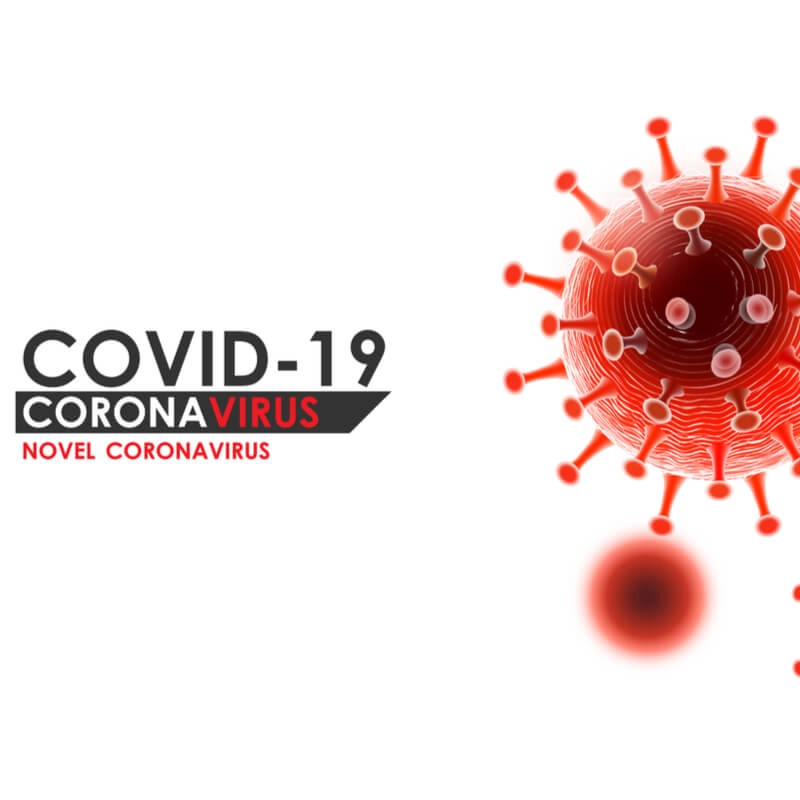Home/Wellness Zone/Sakra Blogs
5th Nov, 2020

COVID-19 Origin
The first case of new pneumonia-like illness was reported in Wuhan City, Hubei Province, China on 8th December 2019 but was reported to the World Health Organization (WHO) only on December 31, 2019. The disease was called 2019-nCoV infection at the start of the outbreak (2019 novel coronavirus infection) which began in China but has since spread to almost the entire world. WHO officially declared a pandemic on March 11, 2020. The International Committee for Taxonomy of Viruses (ICTV) renamed the virus SARS-CoV-2 and the disease was called COVID-19 (COrona VIrus Disease 2019).
The SARS-CoV-2 is one of seven types of coronavirus, which also include ones that cause severe diseases like the Middle East respiratory syndrome (MERS) and sudden acute respiratory syndrome (SARS). The virus is spherical in shape and has proteins called spikes protruding from their surface resembling a crown, therefore the name Corona. These spikes get attached to human cells and undergo a structural change that allows the viral membrane to fuse with the cell membrane. The viral genes can then enter the host cell where it multiplies, producing more viruses.
Role of Laboratory in COVID-19
The clinical laboratory professionals can provide essential contributions to diagnostic reasoning and managed care of patients with suspected or confirmed SARS-CoV-2 infection in three major areas such as etiological diagnosis, patient monitoring, as well as epidemiologic surveillance.
There are many ways by which disease can be diagnosed, each category of the diagnostic test has its own unique role in the fight against this virus. PCR tests are highly accurate and are considered the standard method for diagnosis but running the tests and analyzing the results can take time.
The sample for COVID-19 test is collected from the back of the nose and the throat using a swab. The test may be positive as soon as one day after infection and peaks within 7 days of infection. The infection rapidly declines by 3 weeks, but in some patients, the infection might persist longer with mild illness. Although RT PCR is the standard procedure for diagnosis, its use is limited as it is a very complex procedure, therefore can be carried out only by experienced technicians in qualified laboratories. Sometimes there may be false negative reports due to improper collection of the sample and false-positive reports due to environmental contamination or technical error although these are very rare.
There are other low-complexity, rapid (results within 1 hour) molecular diagnostic tests include cartridge-based assays on platforms that include True Nat and CBNAAT systems but testing throughput is a limiting factor in the widespread use of these platforms.
Serological testing is available only for screening purposes by detection of antibodies against SARS COV 2, but they are not useful for diagnosis of COVID 19. Antibodies in a COVID infected person can be detected in 1-3 weeks after symptom onset, at which time evidence suggests that infectiousness likely is greatly decreased and that some degree of immunity from future infection has developed. However further research is required before any policy decisions can be taken.
Antigen Test for COVID-19
Recently ICMR has approved an antigen test, which is a new type of diagnostic test designed for rapid detection of the virus that causes COVID-19. The main advantage of an antigen test is that it can provide results in minutes. However, antigen tests may not detect all active infections, as they are not as perfect as the PCR test. Antigen tests are very good for the virus but are not better than molecular PCR tests. Antigen tests provide highly accurate test results, but there is a higher chance of false negatives, so negative results do not rule out infection. With this in mind, negative results from an antigen test may need to be confirmed with a PCR test before making treatment decisions or to prevent the virus from spreading due to a false negative.
Antigen tests are important as they can be produced at a lower cost than PCR tests and once multiple manufacturers enter the market, can potentially scale to test lakhs of Indians per day due to their simpler design and helping the country in identifying infection rates closer to real-time.
The clinical laboratories play a major role in this global fight against the pandemic right from rapid diagnosis of viral infection, serological monitoring of the affected populations, rapid turnaround of reports to monitor hospitalized patients with more severe COVID-19-induced complications. Further requirements of containing the Pandemic, for preventing spread in the health care workers while providing care to patients required guidelines and monitoring of proper hand hygiene, maintaining social distancing, adequate use and availability of Personal protective equipment are also monitored.
Across all segments of health care facilities, government and private labs and hospitals many laboratory specialists, technologists, and trainees have selflessly and tirelessly stood on the front lines of the battle against COVID-19. Laboratory medicine plays a key role in the delivery of healthcare by providing objective data to clinicians and other healthcare workers to guide appropriate clinical decision-making resulting in better patient care and outcome.
If you are feeling COVID-19 symptoms, immediately contact labs in Bangalore to get the right diagnosis of COVID-19. There are many NABL accredited labs in Bangalore which are providing COVID-19 antigen test and PCR test.
Enquire Now
